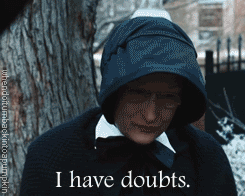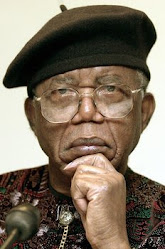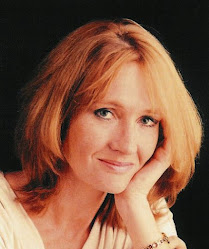The Caine Prize for African Writing is a prestigious literary prize awarded to African writers annually beginning in the year 2000. Each year an anthology comprising of shortlisted stories and workshop stories is published by New Internationalist in the UK and in 8 African countries (South Africa, Nigeria, Kenya, Zimbabwe, Ghana, Zambia, Cameroon & Uganda). This is my second year reviewing the anthology series on my blog. Last year's anthology was titled Lusaka Punk and Other Stories. This year's anthology is titled The Daily Assortment of Astonishing Things and Other Stories. The collection begins with the five shortlisted stories and then continues with the twelve stories penned by the workshop participants. Here we go.
Shortlisted Stories 2016
Somalian/Kenyan author Abdul Adan's The Lifebloom Gift opens this year's collection. It's an odd story. It's not long before I know I don't like it and so I check quickly to see how many pages it is (11 pages) and then I continue. The protagonist worked as a TSA attendant until he was fired about two days ago upon accusations of inappropriately touching a traveler during an airport frisk. He denies the charges then goes on to narrate other incidences of touching strangers without their consent including a man (who seems a bit challenged) called Ted Lifebloom. I wasn't comfortable with this story.
Lesley Nneka Arimah (Nigeria) follows with What It Means When a Man Falls from the Sky. Nneoma is a mathematician but a special kind. She can calculate grief and pain and from those calculations she and her colleagues can make it all go away. It's a pricey procedure obviously. Contrary to my initial fears I liked the story.
Tope Folarin's (Nigeria) short story is called Genesis. This is my first work by Tope Folarin and something about his narration and the story just made me sit up a little, readying myself for a goood story. The protagonist tells of his childhood in Utah, U.S.A. It's one spent in terror of his mentally ill mother. Alternately pleasant and abusive she is a threat to her spouse and two sons. Our narrator observes meltdowns and the physical abuse of his father. He's the big brother absorbing double portions of physical and emotional abuse just to protect his little brother. Tope Folarin's incredible. I'm sooo impressed. Love this story.
Bongani Kona (Zimbabwe) penned At Your Requiem. It's a tale of two cousins who grew up in the same house as brothers fighting for the love an affection of a twisted mother. They grow older and the toxins and big secret from their childhood cause them to spiral out of control as they try to escape via substance abuse. It doesn't seem like their relationship will be repaired anytime soon.
Memories We Lost is by Lidudumalingani (South Africa). Lidudumalingani is the WINNER of the 2016 Caine Prize for African Writing. It's a tale of two sisters. One of them battles mental illness and everyone in their community 's at loss on how to handle this problem so she's subjected to all sorts of rituals. The narrating sister begins to interfere with the medicinal treatment because her sister seems more alive without them. Once she gets wind of the latest treatment proposal she takes matters into her own hands. Memories We Lost is okay.
Workshop Stories 2016
The curiously titled His Middle Name Was Not Jesus was penned by NoViolet Bulawayo (Zimbabwe). We all know Bulawayo. I LOVE her book We Need New Names and I reviewed it in 2013. Mukaka works at a wildlife resort in Zambia and he's infatuated with a lady currently at the resort. He mistakes her tenderness for something deeper and he doesn't handle it well in the end. For a tale by Bulawayo I'm surprised I did not respond sooner to this story.
In Koba Umwine - Peel It Yourself by Chilufya Chilangwa (Zambia), Mumbi's marriage seems set to crumble just three weeks after her nuptials because of an infidelity. A phone call from her mom helps her realize what's important to her.
The Goat is Tope Folarin's second submission and it stands out in the workshop short story lineup. In this boy's family the father is the problem and his mother does her best to mitigate the effects of his fathers rashness. I love this story.
Walking was written by Nigeria's Elnathan John. I remember him from last year's collection and I reviewed his debut novel Born On a Tuesday this past October. In Walking an overweight man exercises daily to fight the weight off. We're privy to all his thoughts & his judgement of other regulars on his exercise route. He's a big man with just as many insecurities, grudges, and issues as the rest of us. I like it.
In Shiko by Billy Kohora, a bunch of old school friends reunite. These boys are in their forties and secondary/high school was a long, long time ago. This is no Real Housewives of Atlanta reunion. This group, at a bar drinking beer and eyeing women, lacks members with any star quality. It's an lackluster band of friends. The business opportunity they meet to discuss is very shady. The protagonist tries to borrow money from his girlfriend and then his dad but that doesn't work. The only thing he's able to bring to the table is secret company intel. During their gathering at a drinking spot that's an office during the day and a brothel at night, one of them calls the narrator a "homo" and everyone freezes. My first thought was "ohh damn... here comes the drama" but... It's a decent story.
The Wandering Festival was written by Bwanga "Benny Blow" Kapumpa (Zambia). Here the protagonist attends "The Wandering Festival" so he can write about it. He's hoping that writing about this once in a decade event will help revitalize his writing career. I just wanted this story to be over.
In the Garden was written by FT Kola (South Africa), another name I recognized from last year's anthology collection. I did not like this story or its narration. There's a marble palace with handmaidens and limestone sphinx sculptures and "precious silk" and stuff. It's possible that this borrows from the ancient empire for artistic purposes. It's definitely not my thing.
Timwa Lipenga of Malawi wrote Duty. The main character heads to prison to see her father. The visits are tough but more so because of the reason he's incarcerated. This is a story that had me wanting more. I like it.
77 Steps by Kafula Mwila (Zambia) isn't engaging. From the beginning the protagonist seems tense. He has questions about his history and the death of his mother years back. Unable to get answers at home he goes out to seek them.
Space II is by Masande Ntshanga (South Africa). Here's a laid back male character whose life seemed promising in the beginning per his father. He hasn't come anywhere close to his potential after all these years. His is a life of prostitutes and prescription drug abuse. I'm surprised I liked this story. It wasn't exciting or moving but it was good in the end.
The titular story of this collection The Daily Assortment of Astonishing Things was written by Okwiri Oduor (Kenya). Immediately it's clear I have my favorite story. Dudu is a little monster who constantly exasperates his mom and terrorizes little kids around him. He steals and destroys everything in his path. During one of his rampages he captured a chicken, broke its wing and burst open its head. He's wild and crazy and unmanageable. This story is very entertaining. I love it. I love it. I love it. I look forward to future literary offerings from Okwiri Oduor.
Namwali Serpell (Zambia) closes this anthology with her story Zo'ona. She's another familiar name I remember from last year's anthology. I LOVE this story sooo much. It starts out with the early morning receipt of an email and before the end of the day lives have been ruined. We hop all over with Serpell from character to character to see the ripple effect of a simple error. I LOVE this story a lot.
Most Memorable
1) The Daily Assortment of Astonishing Things by Okwiri Uduor
2) Zo'ona by Namwali Serpell
3) Genesis by Tope Folarin
4) The Goat by Tope Folarin
As always this is an eclectic compilation of stories from the African continent. Much kudos to all the publishers for putting this together in a tidy little collection. Last year I loved the opening short story but disliked the closing short story of the 2015 anthology. I had felt that the closing short story then wasn't memorable enough to close the collection. This year the reverse is the case. I really like the closing story but not the opening story. Once again I'm glad I chose to review this anthology series annually. I can't wait to see what 2017 brings. Happy Holidays!!
READ:
The Caine Prize for African Writing 2015 Anthology | Book Review
[Image via Amazon]
Shortlisted Stories 2016
Somalian/Kenyan author Abdul Adan's The Lifebloom Gift opens this year's collection. It's an odd story. It's not long before I know I don't like it and so I check quickly to see how many pages it is (11 pages) and then I continue. The protagonist worked as a TSA attendant until he was fired about two days ago upon accusations of inappropriately touching a traveler during an airport frisk. He denies the charges then goes on to narrate other incidences of touching strangers without their consent including a man (who seems a bit challenged) called Ted Lifebloom. I wasn't comfortable with this story.
Lesley Nneka Arimah (Nigeria) follows with What It Means When a Man Falls from the Sky. Nneoma is a mathematician but a special kind. She can calculate grief and pain and from those calculations she and her colleagues can make it all go away. It's a pricey procedure obviously. Contrary to my initial fears I liked the story.
Tope Folarin's (Nigeria) short story is called Genesis. This is my first work by Tope Folarin and something about his narration and the story just made me sit up a little, readying myself for a goood story. The protagonist tells of his childhood in Utah, U.S.A. It's one spent in terror of his mentally ill mother. Alternately pleasant and abusive she is a threat to her spouse and two sons. Our narrator observes meltdowns and the physical abuse of his father. He's the big brother absorbing double portions of physical and emotional abuse just to protect his little brother. Tope Folarin's incredible. I'm sooo impressed. Love this story.
Bongani Kona (Zimbabwe) penned At Your Requiem. It's a tale of two cousins who grew up in the same house as brothers fighting for the love an affection of a twisted mother. They grow older and the toxins and big secret from their childhood cause them to spiral out of control as they try to escape via substance abuse. It doesn't seem like their relationship will be repaired anytime soon.
Memories We Lost is by Lidudumalingani (South Africa). Lidudumalingani is the WINNER of the 2016 Caine Prize for African Writing. It's a tale of two sisters. One of them battles mental illness and everyone in their community 's at loss on how to handle this problem so she's subjected to all sorts of rituals. The narrating sister begins to interfere with the medicinal treatment because her sister seems more alive without them. Once she gets wind of the latest treatment proposal she takes matters into her own hands. Memories We Lost is okay.
Workshop Stories 2016
The curiously titled His Middle Name Was Not Jesus was penned by NoViolet Bulawayo (Zimbabwe). We all know Bulawayo. I LOVE her book We Need New Names and I reviewed it in 2013. Mukaka works at a wildlife resort in Zambia and he's infatuated with a lady currently at the resort. He mistakes her tenderness for something deeper and he doesn't handle it well in the end. For a tale by Bulawayo I'm surprised I did not respond sooner to this story.
In Koba Umwine - Peel It Yourself by Chilufya Chilangwa (Zambia), Mumbi's marriage seems set to crumble just three weeks after her nuptials because of an infidelity. A phone call from her mom helps her realize what's important to her.
The Goat is Tope Folarin's second submission and it stands out in the workshop short story lineup. In this boy's family the father is the problem and his mother does her best to mitigate the effects of his fathers rashness. I love this story.
Walking was written by Nigeria's Elnathan John. I remember him from last year's collection and I reviewed his debut novel Born On a Tuesday this past October. In Walking an overweight man exercises daily to fight the weight off. We're privy to all his thoughts & his judgement of other regulars on his exercise route. He's a big man with just as many insecurities, grudges, and issues as the rest of us. I like it.
In Shiko by Billy Kohora, a bunch of old school friends reunite. These boys are in their forties and secondary/high school was a long, long time ago. This is no Real Housewives of Atlanta reunion. This group, at a bar drinking beer and eyeing women, lacks members with any star quality. It's an lackluster band of friends. The business opportunity they meet to discuss is very shady. The protagonist tries to borrow money from his girlfriend and then his dad but that doesn't work. The only thing he's able to bring to the table is secret company intel. During their gathering at a drinking spot that's an office during the day and a brothel at night, one of them calls the narrator a "homo" and everyone freezes. My first thought was "ohh damn... here comes the drama" but... It's a decent story.
The Wandering Festival was written by Bwanga "Benny Blow" Kapumpa (Zambia). Here the protagonist attends "The Wandering Festival" so he can write about it. He's hoping that writing about this once in a decade event will help revitalize his writing career. I just wanted this story to be over.
In the Garden was written by FT Kola (South Africa), another name I recognized from last year's anthology collection. I did not like this story or its narration. There's a marble palace with handmaidens and limestone sphinx sculptures and "precious silk" and stuff. It's possible that this borrows from the ancient empire for artistic purposes. It's definitely not my thing.
Timwa Lipenga of Malawi wrote Duty. The main character heads to prison to see her father. The visits are tough but more so because of the reason he's incarcerated. This is a story that had me wanting more. I like it.
77 Steps by Kafula Mwila (Zambia) isn't engaging. From the beginning the protagonist seems tense. He has questions about his history and the death of his mother years back. Unable to get answers at home he goes out to seek them.
Space II is by Masande Ntshanga (South Africa). Here's a laid back male character whose life seemed promising in the beginning per his father. He hasn't come anywhere close to his potential after all these years. His is a life of prostitutes and prescription drug abuse. I'm surprised I liked this story. It wasn't exciting or moving but it was good in the end.
The titular story of this collection The Daily Assortment of Astonishing Things was written by Okwiri Oduor (Kenya). Immediately it's clear I have my favorite story. Dudu is a little monster who constantly exasperates his mom and terrorizes little kids around him. He steals and destroys everything in his path. During one of his rampages he captured a chicken, broke its wing and burst open its head. He's wild and crazy and unmanageable. This story is very entertaining. I love it. I love it. I love it. I look forward to future literary offerings from Okwiri Oduor.
Namwali Serpell (Zambia) closes this anthology with her story Zo'ona. She's another familiar name I remember from last year's anthology. I LOVE this story sooo much. It starts out with the early morning receipt of an email and before the end of the day lives have been ruined. We hop all over with Serpell from character to character to see the ripple effect of a simple error. I LOVE this story a lot.
Most Memorable
1) The Daily Assortment of Astonishing Things by Okwiri Uduor
2) Zo'ona by Namwali Serpell
3) Genesis by Tope Folarin
4) The Goat by Tope Folarin
As always this is an eclectic compilation of stories from the African continent. Much kudos to all the publishers for putting this together in a tidy little collection. Last year I loved the opening short story but disliked the closing short story of the 2015 anthology. I had felt that the closing short story then wasn't memorable enough to close the collection. This year the reverse is the case. I really like the closing story but not the opening story. Once again I'm glad I chose to review this anthology series annually. I can't wait to see what 2017 brings. Happy Holidays!!
READ:
The Caine Prize for African Writing 2015 Anthology | Book Review
[Image via Amazon]












































